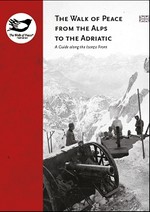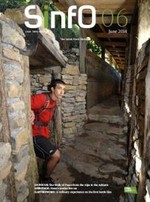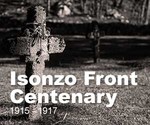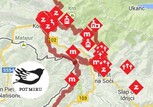Address by former Defence Minister Janko Veber and former President of the National Committee for Commemorating the 100th Anniversaries of World War I (2014–2018)
When entering upon my presidency of the National Committee for Commemorating the 100th Anniversaries of World War I (2014–2018), I feel great responsibility that the Republic of Slovenia can articulate its mature statehood posture on the memory of this war, which shook and marked the mankind in its very foundations, and influenced the global order and further developments of the turbulent 20th century referred to as the Age of Extremes. I assumed this function with a firm belief that it was the right thing for the Ministry of Defence to play a significant role in guiding committee activities, as the military involvement of our ancestors during World War I, despite the bitter fact that they were fighting for the goals, of which they knew only little and understood even less, still represents our historical military experiences that must be valued and evaluated from this perspective also in modern time. At the same time, I am aware that I am taking on the leadership of the committee, which has already excelled itself in the organization of several high—profile events and increased the interest of the wider public for the memory of World War I. I trust that in cooperation with committee members, and support of the Ministry of Defence and other institutions involved in the project of Commemorating the 100th Anniversaries of World War I as well as the Republic of Slovenia’s diplomatic representations abroad we will successfully continue the productive work.
From the perspective of recalling the impact of World War I on the lives of our people, this year is particularly important as it marks 100 years of Italy’s entering and waging war with Austro-Hungarian Empire, which turned the entire Soča River Valley, in the length of 90 km extending all the way from mount Rombon to the Gulf of Trieste, into a bloody battlefield. Although the war had been felt in the Slovenian territory even before that, this turning event made the war ever present also beyond the Isonzo Front area. It marked the beginning of the Great War, which left Slovenes collectively a lot of suffering, irreparable human loss and painful experience. Despite the fact that it was here that Slovenian soldiers were fighting and dying for the then great and nationally mixed superpower to which they belonged, they nevertheless felt that they were defending the territory of their own Slovenian nation – the nation that eventually came to life in the very same century in the sovereign and independent state.
The time we live in now, 100 years after World War I, definitely gives us the opportunity to build on the memory of those painful past events in a dignified manner with a touch of humanity and trust in the goodwill of nations living in this territory, where the state borders of the neighbouring nations no longer divide us as strong as they used to. We at the National Committee for Commemorating the 100th Anniversaries of World War I (2014–2018) feel therefore great responsibility in making our contribution to even stronger links among the nations living in this territory, notably through the implementation of concrete projects.
One of the important projects in the framework of commemorating the 100th anniversaries of the war is related to the further development of the Walk of Peace, a museum-like memorial path guiding through memorial landmarks of World War I, which was built from the Upper Soča Valley to the Adriatic Sea. We are very honoured that the Walk of Peace from the Alps to the Adriatic project has also received support by presidents of the Republic of Slovenia and the Italian Republic. With its opening on the first day of spring this year the event will symbolically strengthen the links among border areas. Moreover, the memory of the Isonzo frontline that divided people and nations 100 years ago and claimed so many lives, will gain a new meaning conveying an optimistic message of peace and friendship efforts among nations. I am convinced that this path, which will link the remains of the Isonzo Front battles, open-air museums, Kobarid museum and Cerje monument, will be a welcome new addition to the tourist offer on both sides of the Soča River Valley.
Also, a number of other events planned in this and the following years will focus on reviving the memory of this constituting and turning part in Slovenian history, and the inclusion of Slovenes as a nation in the European and world history as well as in modern time, in an interesting and attractive way for the public. In year 2016, we will officially mark the 100th anniversary of the construction of the Russian chapel beneath Vršič pass, and in 2017 a concert of military bands with Maestro Riccardo Muti will take place in Kobarid.
It is a fact that on both sides World War I mercilessly claimed lives of young people who represented the heart and future of nations involved in the war. The organization of all the events and other activities is therefore underlined by great respect for the deceased, but also by the fundamental effort of the democratic world to which we belong as a country, namely that conflicts should be resolved peacefully and that the crises around the world which could spread to threatening conflicts should be addressed proactively.





